More than many schools, Vanderbilt is peppered with artists of all colors, from the technical musicians of Blair to the singer-songwriters of the Music Room. As VandyRadio’s music director, I’ve made it my business to know what all of them are up to: what they release, where they perform, and why they love music. And lately, it’s Amelia Day who has captured the spirit of Music City and brought it to campus with her new EP, Eastward of Eden.
Eastward of Eden is an innovative 6-track folk EP that explores themes of desire, longing, and satisfaction in the modern era. It starts with an epic Celtic-inspired opening, transitioning smoothly from the intro track “Genesis” to Day’s anthemic folk rock title track “Eastward of Eden,” which features Jonathan Wilson of Edgehill on drums. “Eastward of Eden” is incredibly novel for Day, whose previous releases have consisted of close-to-the-chest acoustic singles like “Orange Juice” and “valentine’s day blues.” The EP marches onward through the jazzy and sensual “Silhouette,” offering a cinematic take on the deja vu that strikes after a relationship meets its end. “Centerpiece” is the swelling and emotional middle track of the EP, offering a fictional glance into a struggling relationship. Day then takes storytelling in a different direction with “Gatsby,” inspired by F. Scott Fitzgerald’s novel. Finally, the EP closes with the magnificently composed finale “When You Let Down Your Hair,” which sees Day opening up to
her audience with an intensely personal track characterized by hauntingly beautiful harmonies and deliberately ambiguous lyricism. It’s an incredible record in which Amelia Day develops significantly her identity as an artist. I interviewed Amelia over coffee at Local Java to ask her about who she is as an artist and what this new EP, which develops a sound that goes beyond her acoustic releases, means to her.
Parker: Why did you start making music?
Amelia: So I started playing piano when I was very small, like five years old. I really wanted to take piano lessons. It kind of translates to everything else, because you have the whole Western scale laid out in front of you. I would always just make up a bunch of sh*t… I much preferred improv to playing the songs I was learning. My piano teacher would play chords in the lower
register and let me mess around on the high end, and I think that instilled a love for creating music as opposed to just playing what was in front of me.
I’ve been songwriting since middle school. It was like a journal for me; it was a way to get my emotions out in a more productive way than bottling them in, and connecting it to music was more genuine than just words. I’m an English major, and I feel like words can be limited sometimes. I think there’s something about music that everyone can connect to… it’s a very visceral feeling. So this was very cathartic for me when I was going through stuff.
P: What’s your process like now? Do you have a particular order that you do things?
A: I probably should have more of an organized order to how I songwrite, but usually, it’s all over the place! I usually start with a little guitar riff and then build a melody on top of that. I have this document on my phone with lyric ideas and song titles, and sometimes one will really stick out to me and I’ll build a song around that.
P: I’ve noticed your music is very lyric-forward.
A: Thank you! I try to really make the lyrics stand out, because I put a ton of effort into them. I love the musical side of things, but even more than the music, the lyrics are what I’m most proud of in my songs.
P: Who are your biggest musical influences?
A: Joni Mitchell is a big one, especially for songwriting. I think her lyricism is phenomenal. She also experiments a lot with guitar styles; I like to mess around and not think in such a technical way, with fingerpicking, in a style that’s inspired by Joni. I think Blue is a near perfect album. My favorite songs by her are “My Old Man”… “River” is a classic, and then “Little Green” is also
really good.
P: If you could work with any musician, who would it be, and why?
A: It would probably be Madison Cunningham. I think she is really revolutionary in how she’s approaching playing the guitar, but also her lyrical style. I feel like a lot of music today is about punchy, straightforward lyrics, and she balances these tableaus with really direct statements that just hit, and say things in a way they’ve never been said before without over-frilling the point. That’s something that I have trouble with, speaking about this main theme but getting caught up in finding clever metaphors. It’s a tough balance, and I think she does it wonderfully. She’s incredible.
P: What was the theme of the Eastward of Eden EP as a whole? What’s the story you’re telling?
A: All of the songs are tied around storytelling from different perspectives. “Eastward of Eden” is this omniscient, mythic storytelling of humanity’s rise and fall from an outside perspective, like an alien, looking at humans and their past. Then you got “Silhouette” which is very personal, but also brings in very picturesque elements not necessarily experienced by me. “Centerpiece” is fully a character, bringing my own emotions into the idea, but very much a story song, a la Taylor Swift folklore. Obviously, “Gatsby” is a literal story song. Then “When You Let Down Your Hair” is entirely me. It’s my story, and it’s one of the most personal songs I’ve ever written and shared with people. It’s scary to share something that’s so close to you, but it’s very much a
story in that it follows a through-line.
Also, they all are tied to longing. Longing in love, longing for a return to nature, longing for the past, longing for another person… not being satisfied in the present moment. Obviously, stylistically, they’re all tied together by folk. Silhouette the least of all (because it’s not meant to), but it’s still folk in its structure. That’s what I grew up on: Simon and Garfunkel, CCR… even Led
Zeppelin has some songs that are like that. The sound of “Eastward of Eden” is very folk rock.
P: Tell me about the song “Eastward of Eden.” What inspired the song?
A: For “Eastward of Eden,” that was inspired by climate fiction class. Basically, I was researching for an essay, and the phrase “eastward in Eden” was in one of the articles. And I was like, that has such a cool ring to it. And so I started singing stuff based off of what we had been talking about, the climate crisis and how we’re just ignoring it in order to function and not be overwhelmed. And that’s the basis of “Eastward of Eden.” I pulled in some older Celtic folk styles to make it sound medieval and mythical. The times I’ve been most connected to a sense of spirituality have been in the woods, backpacking with my dad, kayaking, hiking, all of that stuff. And I think nature is one of the most beautiful things about life, and I think we’re often really disconnected from it.
P: What about The Great Gatsby inspired you to write “Gatsby”? How directly connected is your song to the book?
A: This is kind of funny! This song was for a class project my senior year of high school. “Gatsby” was the first song that I wrote that I liked, which is part of why it’s on this project. It’s kind of an homage to my younger self. But it’s a song that I still love, and still a favorite when I play it at venues. So for this project, we were either supposed to write an essay, a poem, or a song. I had horrible stage fright at the time; I was so freaking nervous, and I had to perform it right in front of the whiteboard with everyone staring at me. It’s different from performing in choir, where everyone is a singer and everyone understands. But that was one of my favorite performance experiences, because I let that go for the first time and just immersed myself in the music. And as far as the songwriting, I am Gatsby in the song, which I didn’t realize until later. Talking about that culture of opulence ties into Eastward of Eden and the commentary about returning to our roots. We’re often trying to improve on things at such a rate that it’s actually degrading the quality of life in general, and I think that’s a theme in Gatsby as well. It’s a song about longing, which is a theme on the album. As I’ve been re-recording it after writing it four or five years ago, I’m like, sh*t, this song was about me the whole time!
P: Does that happen a lot, where you’ll write a song about something and then recontextualize it later?
A: One hundred percent! I feel like songs are time capsules of my mental state or perspective at a certain time, and I feel like it’s cool to be performing songs I wrote years ago and realizing that what I was writing about then wasn’t exactly what I thought I was writing about, and performing them in a way that brings my new perspective into it. “When You Let Down Your Hair” is a great
example of that!
P: I love “When You Let Down Your Hair”! It’s my favorite song on the EP. Tell me more about it.
A: It’s my favorite to perform. Any time I perform it, I put aside my thoughts about the technical side of things and loose myself in the lyrics of it. I wrote the first draft in two hours, and that never happens for me. I’m such a perfectionist that usually it takes ages for me to say, this is a draft. But the first draft of this is very close to the final version, and I wrote it in two hours sitting on the porch. It’s about revisiting my first relationship with a girl, and her family was very homophobic, so it was a very back-and-forth relationship. And it was reflecting on that time a year after we had broken up, and how even though you might care about somebody, and they might care about you, sometimes you have to let them go in order to move on and grow. And now, I’ve
realized looking back on it that me saying “I don’t want to see” and “I don’t want to care” is different from saying “I don’t care.” I didn’t realize that until later; I thought this song was like, I’m over it, it’s whatever! And that simply wasn’t the case. So it’s funny how you can return to songs and critique your younger self, like, I know what you were really saying! Nice try.
P: Here’s a weird one for you. A lot of your singles from before have been very acoustic; I listened to this EP and noticed a lot of percussion. Was that deliberate? Did you want to produce something different?
A: I actually would love to play more often with a full band. I’ve been leaning more towards writing some rock songs and jazz songs with a walking bassline and brush drums. And as I’ve been able to perform with a band more often, my writing has leaned more in that direction, because it isn’t just a folk song that I have to play by myself. Like, oh, I have some band mates I play with at Vanderbilt, I have band mates back home, so I can write songs in a rock style that are sick to play live, and I can do that now. So that comes from the freedom of having that full-band availability, and knowing that if I write a classic rock song, I can make it! Playing with a band is my favorite thing; it’s so freeing not to have everything on yourself.
P: “Silhouette”! I wanted to ask you about this song too; it’s so jazzy and unique. Tell me about it.
A: It’s a song about how, when a relationship ends, the ghosts of memories with that person still linger in those same spaces, so it’s silhouettes of that person left behind. I like the idea of a silhouette as a very sensual image, especially in film. “Silhouette” is very different from my other songs; it’s almost written in black-and-white. In my head, how I wrote it was on a greyscale. I
tried to do the video in a similar fashion. It’s very scene-based; it takes you from location to location with the narrator and, I hope, brings a sense of immediacy to going through your routine and having memories of that person pop up. And I think the jazz style lends itself to more of a sensual song, where folk doesn’t as much. Folk culture is freeing in a sense, but less in a sexual sense; there is kind of a line you can draw. So going into a new style didn’t make me feel so constrained.
—
You can see Amelia Day perform her new EP live at Our Show sponsored by She Is The Music on October 22. Visit @ourshownashville on Instagram for details. You can also stream Eastward of Eden and other songs by Amelia Day on Spotify or Apple Music, or catch them live on VandyRadio.
Photo by: Alexej Latimer
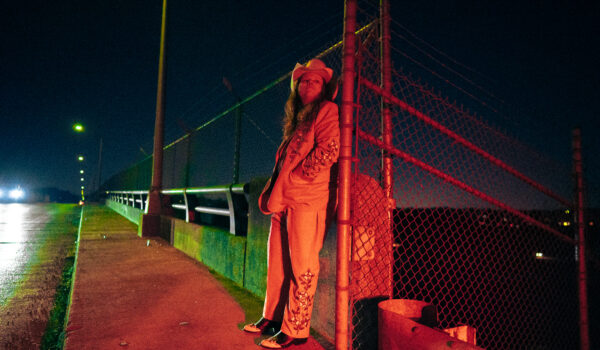
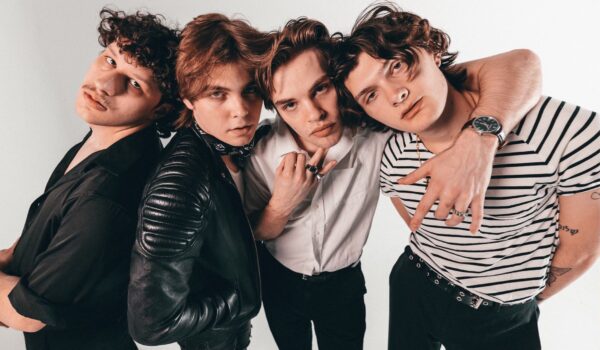
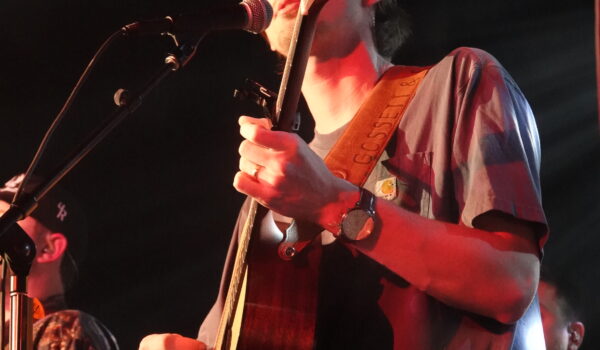

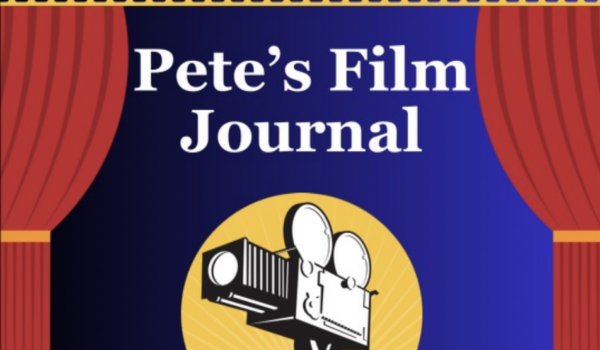
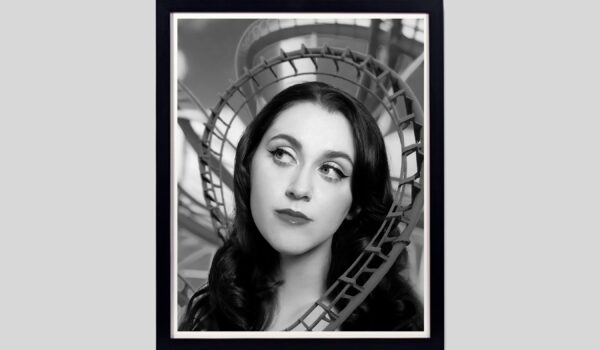
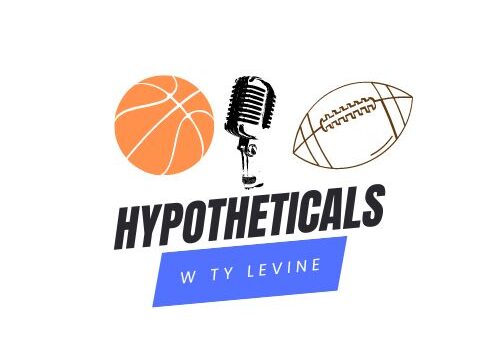
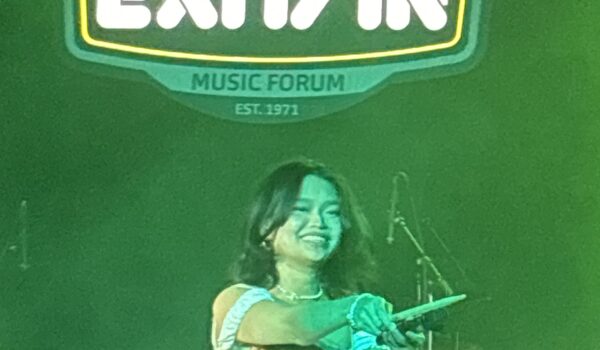
Comments